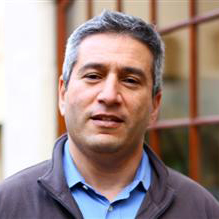Michael F. Hoexter is a Research Scholar at the Global Institute for Sustainable Prosperity. He received his bachelors from Yale University and Ph.D. in psychology from University of Michigan. With a long-time interest in sustainability, Dr. Hoexter is a scholar-practitioner and policy analyst in the area of energy and climate policy, working both in the business world and publishing scholarly articles at the interface between addressing human-caused climate change and economics. Dr. Hoexter has contributed chapters on energy pricing and energy conservation and efficiency to books published by Springer and Elsevier. Dr. Hoexter blogs regularly at New Economic Perspectives on the application of sound economic and ethical principles to climate and energy policy, including policy advocacy for full employment and skills retraining to address the climate challenge. Dr. Hoexter has developed an inside, practitioner’s understanding of technological and economic requirements for businesses, electric utilities, governments, and organizations to reduce carbon emissions from the built environment and energy production. He has consulted as a technical product representative on building projects targeting the high energy performance, Passivhaus standard, of which there are now 60,000 buildings of all types worldwide. From marketing and policy consulting work, he is also an expert in the policy challenges and alternatives facing renewable energy developers, with a focus on choices in the policy instruments associated with financing renewable energy development. He has professional experience in government and utility sponsored conservation and energy efficiency programs in California and Northeastern States of the United States.

